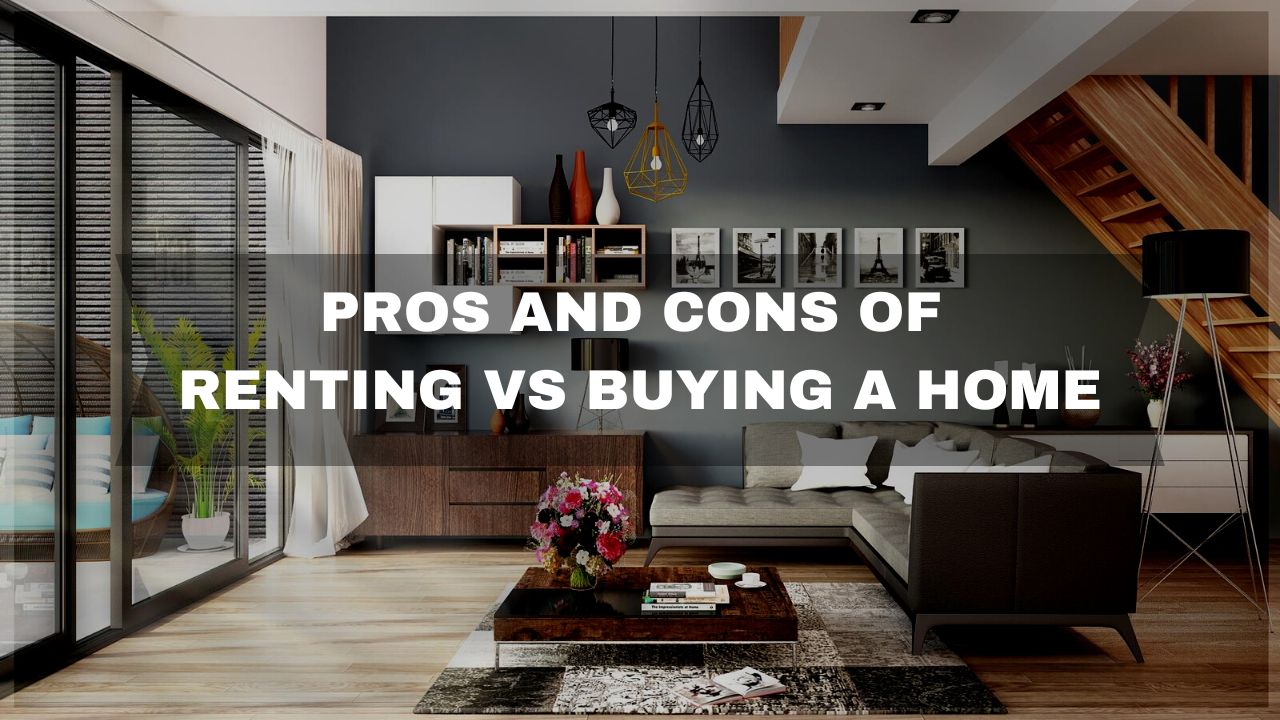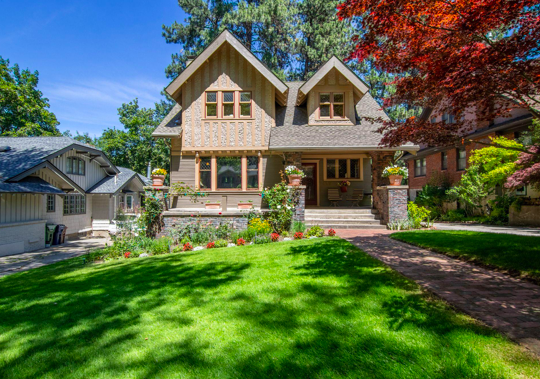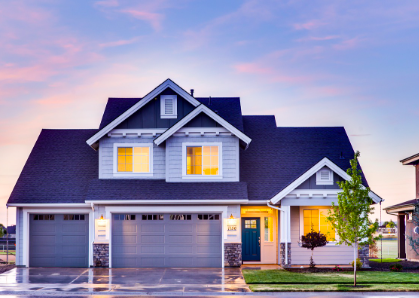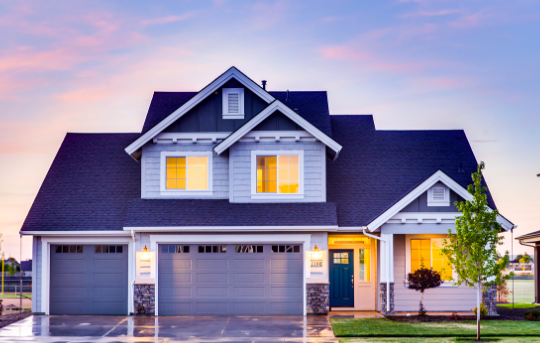Housing is one of the biggest expenses that most people will ever incur in their lifetime. It’s a complex decision that involves not just money, but also lifestyle, family, and career considerations. Renting or buying a home each have their own pros and cons, and the best option for one person may not be the best for another.
In this article, we will explore the key benefits and drawbacks of both renting and buying a home. We’ll take a closer look at the financial aspects, such as monthly costs and long-term investments, as well as the more intangible factors, like flexibility, freedom, and stability. Whether you’re a first-time homebuyer or a seasoned renter, this article will provide you with the information you need to make an informed decision about your housing situation.
Get to know The Ultimate Guide to Making Money from Home

So, if you’re trying to decide whether renting or buying a home is right for you, keep reading!
Pros of Renting a Home
- Flexibility: Renting a home gives you the flexibility to move to a different location more easily if your job or life situation changes. You won’t have to worry about selling a house or losing money on a property if you need to move unexpectedly.
- No Maintenance Responsibilities: When you rent a home, the landlord is responsible for any maintenance or repairs that need to be made. This can be a significant cost savings, especially if you’re not handy or don’t have the time or resources to take care of repairs yourself.
- Lower Upfront Costs: Renting a home usually calls for a lower upfront investment as compared to buying a home. You may only need to pay first and last month’s rent and a security deposit, rather than being ready with a down payment and closing costs.
- Predictable Monthly Costs: Renting a home can provide a more predictable monthly cost. Your rent will generally only increase by a set amount each year (if at all), and you won’t have to worry about fluctuations in property taxes, homeowner’s insurance, or interest rates.
Cons of Renting a Home
- No Equity Build-Up: When you rent a home, you’re not building any equity in the property. This means that you won’t see a return on your investment if you decide to sell the property in the future.
- Limited Customization: Renting a home usually means that you won’t be able to make any permanent changes to the property, such as painting the walls or installing new fixtures.
- Landlord Dependence: Renting a home means that you’ll be dependent on your landlord for any repairs or maintenance that need to be done. If your landlord is unresponsive or uncooperative, you may be left with a home that is not safe or liveable.
Pros of Buying a Home
- Equity Build-Up: When you buy a home, you’re building equity in the property. Over time, your home is likely to appreciate in value, which means that you’ll see a return on your investment if you decide to sell the property in the future.
- Customization: When you own a home, you’re free to make any changes you like to the property. You can paint the walls, install new fixtures, and make other modifications that will make the home feel like your own.
- Tax Benefits: Owning a home can offer several tax benefits, including the ability to deduct mortgage interest and property taxes from your taxable income.
Cons of Buying a Home
- Higher Upfront Costs: Buying a home requires a much larger upfront investment than renting a home. You’ll need to come up with a down payment, closing costs, and funds to cover any necessary repairs or renovations.
- Maintenance Responsibilities: When you own a home, you’re responsible for any maintenance or repairs that need to be made. This can be a significant cost, especially if you’re not handy or don’t have the time or resources to take care of repairs yourself.
- Fluctuating Monthly Costs: Owning a home can mean that your monthly costs can fluctuate. You’ll need to be prepared for changes in property taxes, homeowner’s insurance, and interest rates, which can all impact your monthly mortgage payment.
Also read:
- Should you get home equity loan
- Home Buying Tips for Newlywed Couples
- Can You Still Buy Your Dream Home if There’s an Appraisal Gap?
FAQs
How does the cost of renting vs buying a home compare?
The cost of renting vs buying a home can vary greatly, depending on factors such as location, size, and age of the property. Renting generally has lower upfront costs, but the monthly expenses can be more predictable. On the other hand, buying a home involves a larger upfront investment, but the monthly expenses can be more flexible.
Can I build equity by renting a home?
No, you cannot build equity by renting a home. Building equity is only possible when you own a property and make mortgage payments over time.
Can I make changes to a rental property?
Typically, renters are limited in their ability to make changes to a rental property. Landlords generally only allow cosmetic changes, such as painting or hanging pictures, and may not allow more significant changes.
Who is responsible for maintenance and repairs in a rental property?
In a rental property, the landlord is typically responsible for maintenance and repairs. However, it’s important to understand the terms of your lease agreement and to communicate any issues with your landlord promptly.
What are the tax benefits of owning a home?
Owning a home can provide several tax benefits, including the ability to deduct mortgage interest and property taxes from your taxable income. It’s important to speak with a tax professional to understand the specific tax benefits that may be available to you.
How do I determine which option is right for me?
Determining which option is right for you will depend on your personal financial situation, lifestyle, and future plans. It’s important to consider all of your options carefully and do your research before making a decision.
Conclusion
Both renting and buying a home have their own unique advantages and disadvantages. Renting provides greater flexibility, lower upfront costs, and predictable monthly expenses, but it also means giving up the chance to build equity and make changes to the property. On the other hand, buying a home provides the opportunity to build equity and make changes, but it also involves a larger upfront investment and a range of ongoing responsibilities.
When making a decision about whether to rent or buy a home, it’s important to consider your personal financial situation, lifestyle, and future plans. If you’re planning to stay in a location for only a short period of time or don’t have the funds for a large down payment, renting may be the best option. However, if you’re looking for a long-term home and have the financial stability to take on the responsibilities of homeownership, buying may be the way to go.
Ultimately, the choice between renting and buying will depend on a variety of factors, and it’s important to do your research and consider your options carefully before making a decision. Whether you choose to rent or buy, it’s important to find a home that meets your needs and helps you feel comfortable, safe, and secure.



